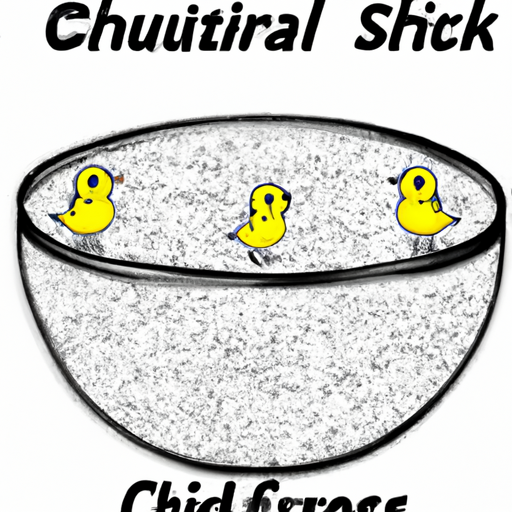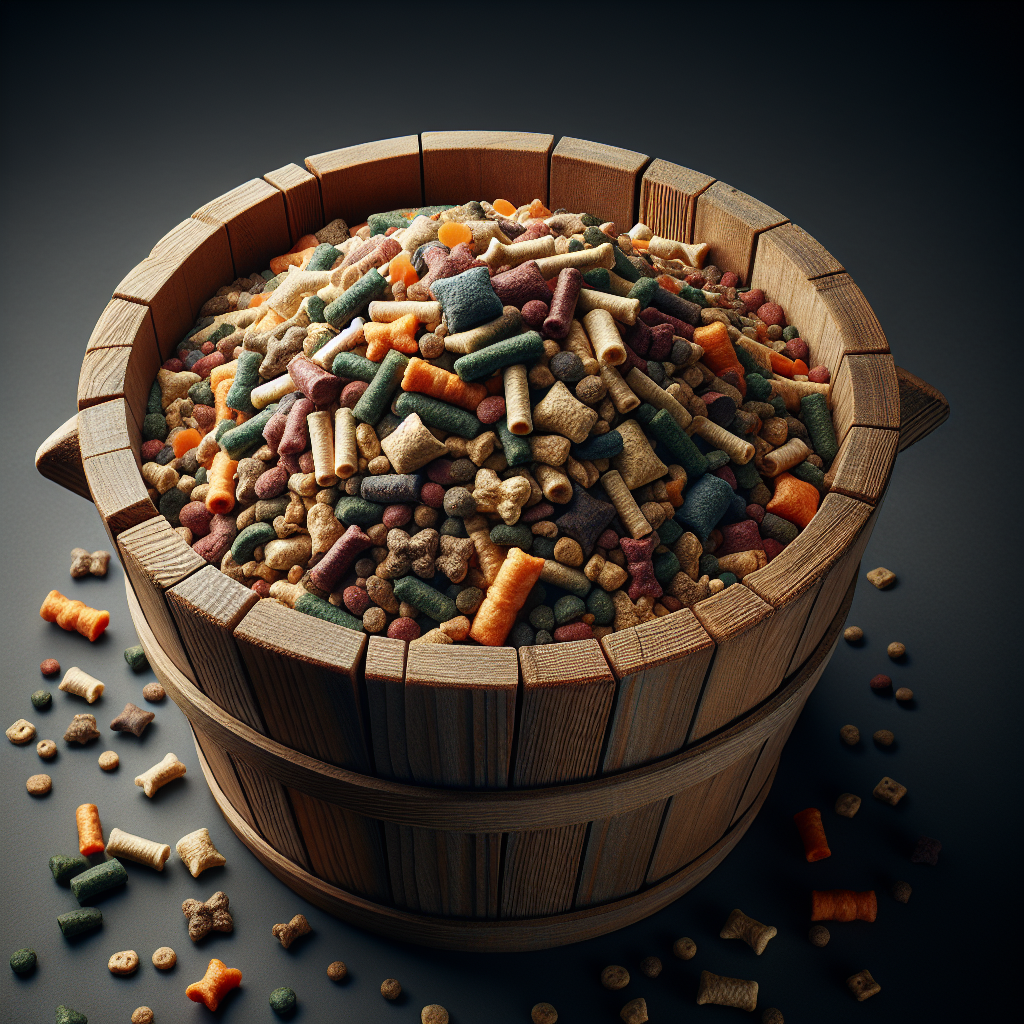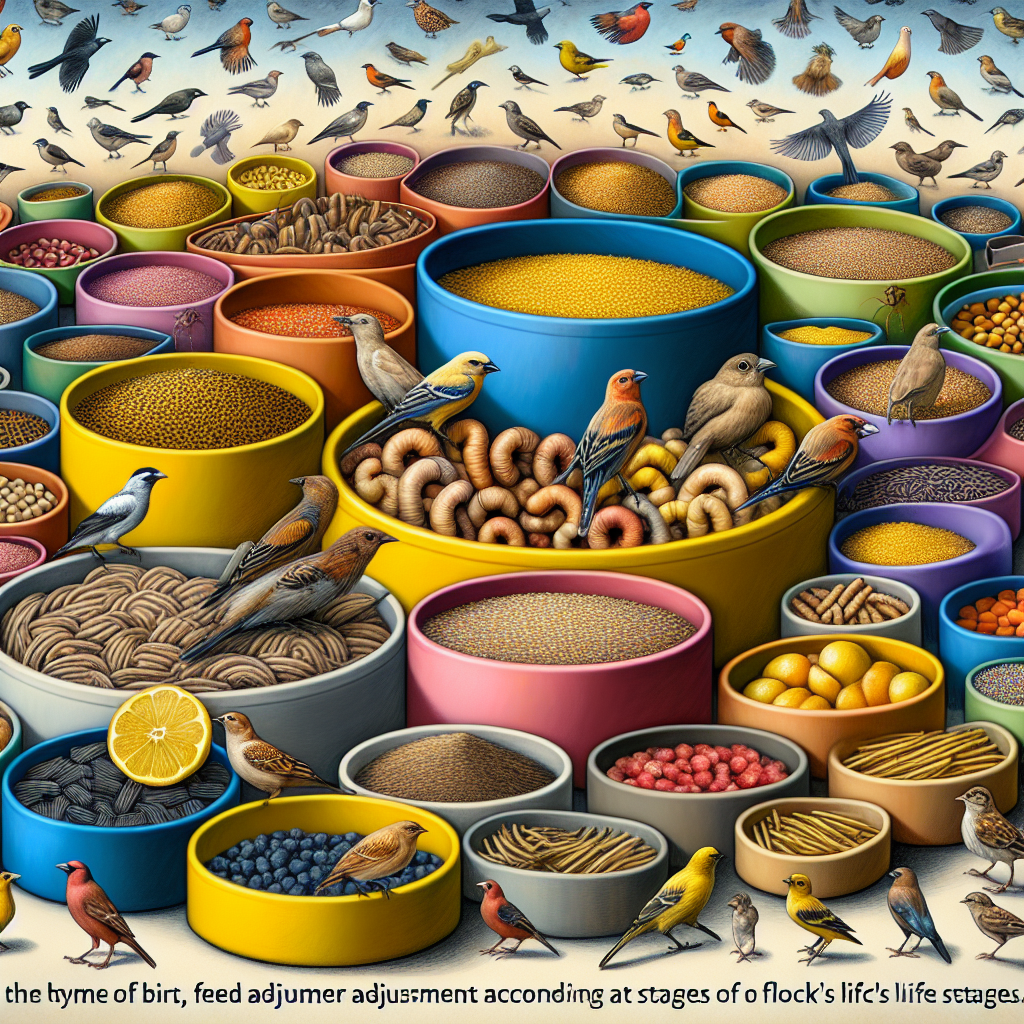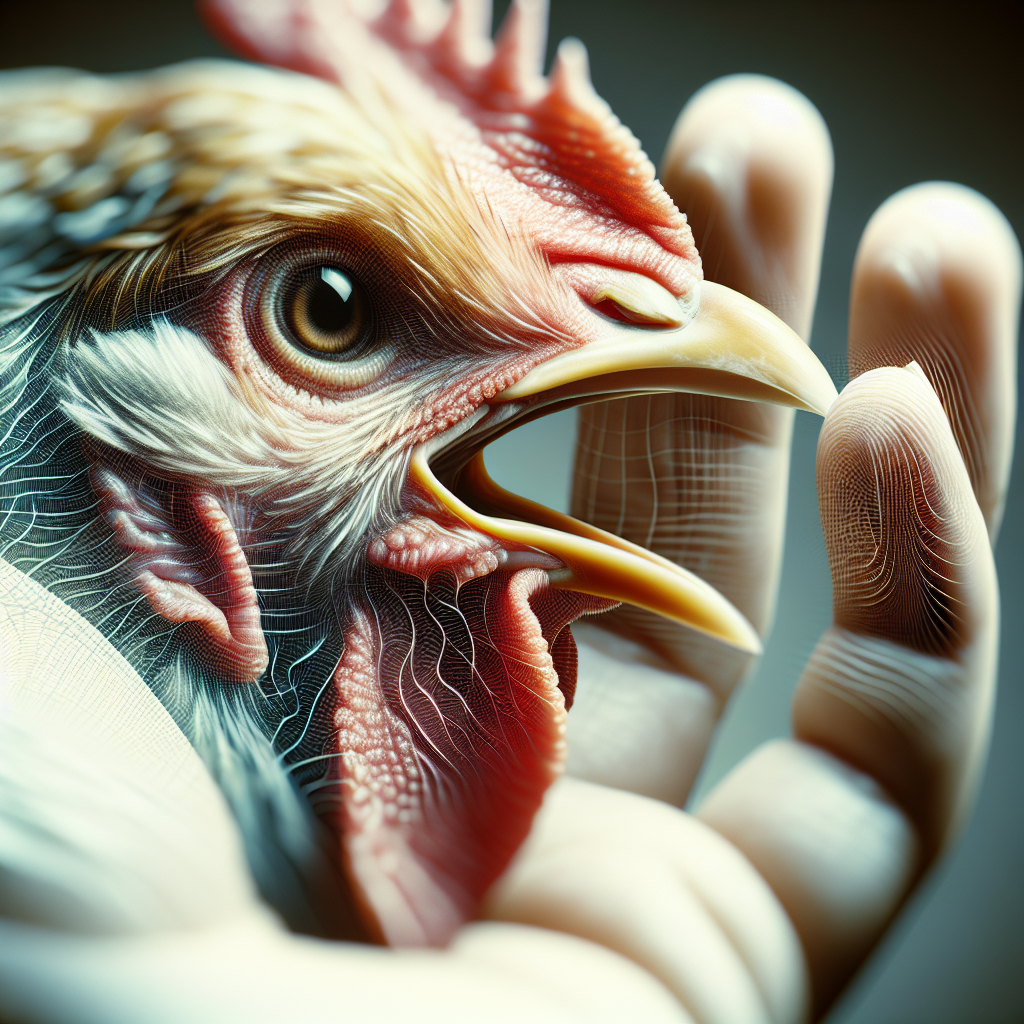Whether you’re a new chick owner or a seasoned poultry enthusiast, understanding the specific dietary needs of these adorable little creatures is essential for their optimal growth and development. Choosing the right feed for your chicks plays a vital role in their overall health and well-being. In this informative article, we will explore the specific dietary requirements of chicks and help you determine the best feed options to keep your feathered friends happy and thriving. From essential nutrients to the right balance of proteins and grains, we’ve got you covered. So let’s jump right in and ensure that your chicks receive the nutrition they deserve!
Types of Feed for Chicks
Starter Feed
Starter feed is specifically formulated to meet the nutritional needs of young chicks. It is designed to provide them with the essential nutrients and energy they need for healthy growth and development. Starter feed is usually high in protein and contains a balanced combination of vitamins and minerals. It is typically fed to chicks from hatching until they are around six to eight weeks old.
Grower Feed
Once chicks have reached the age of six to eight weeks, they can be transitioned to grower feed. This type of feed is designed to provide the necessary nutrients for continued growth and development. Grower feed typically has a lower protein content compared to starter feed, as the chicks’ growth rate slows down during this stage. It still contains the essential vitamins and minerals needed for healthy development.
Finisher Feed
When chicks reach the age of 12 to 14 weeks, they can be switched to finisher feed. Finisher feed is lower in protein content compared to starter and grower feeds, as the chicks are nearing maturity and their growth rate slows down even further. This type of feed helps ensure that the chicks receive the appropriate nutrients to support their overall health and well-being as they approach adulthood.
Medicated Feed
Medicated feed is an option for chicks at any stage of growth. It contains medication, such as coccidiostats, which help prevent the occurrence of coccidiosis, a common and potentially deadly disease in chicks. Medicated feed should only be used under the guidance and recommendation of a veterinarian.
Protein Requirements
Importance of Protein
Protein is an essential nutrient for the growth, repair, and maintenance of body tissues in chicks. It plays a crucial role in the development of muscles, feathers, and internal organs. Adequate protein intake is crucial for the healthy growth and development of chicks. Without enough protein, chicks may suffer from stunted growth, weakened immune systems, and other health issues.
Recommended Protein Levels
The protein requirements for chicks vary depending on their age and growth stage. Starter feed typically contains around 20-22% protein, which is crucial for supporting rapid growth during the early stages of chick development. Grower feed usually has a protein content of around 16-18%, while finisher feed contains about 14-16% protein. These protein levels provide the appropriate amount of amino acids necessary for chicks’ overall growth and development.
Sources of Protein for Chicks
High-quality protein sources for chicks include soybean meal, fish meal, and meat and bone meal. These protein sources have a good amino acid profile and are easily digestible for chicks. It is essential to provide a balanced combination of protein sources to meet their specific dietary requirements.
Energy Requirements
Importance of Energy
Energy is a vital component of a chick’s diet as it provides the fuel necessary for various metabolic functions, growth, and overall activity. Adequate energy intake is crucial for maintaining body temperature, supporting growth, and ensuring proper organ function. Without enough energy, chicks may become lethargic, show poor growth, and have weakened immune systems.
Recommended Energy Levels
The energy requirements for chicks vary depending on their age and growth stage. Starter feed usually has higher energy content to support rapid growth during the early stages. Grower and finisher feed have lower energy levels to match the reduced growth rate as the chicks mature. The exact energy levels may vary among different feed brands, so it is important to follow the recommended guidelines provided by the manufacturer.
Sources of Energy for Chicks
The primary sources of energy in feed for chicks are carbohydrates and fats. Carbohydrates, such as grains and cereal by-products, provide a readily available source of energy. Fats, on the other hand, are a concentrated source of energy and help in the absorption of fat-soluble vitamins. It is important to provide a balanced combination of carbohydrates and fats to meet the specific energy requirements of chicks.
Vitamin and Mineral Requirements
Importance of Vitamins and Minerals
Vitamins and minerals are essential for the overall health and well-being of chicks. They play a crucial role in various physiological functions, including bone development, immune system function, and enzyme activity. Adequate intake of vitamins and minerals is necessary to prevent deficiencies and support optimal growth and development.
Specific Vitamins and Minerals for Chicks
Some of the essential vitamins and minerals required by chicks include vitamin A, vitamin D, vitamin E, calcium, phosphorus, and selenium. Vitamin A is necessary for vision, growth, and immunity. Vitamin D is crucial for calcium absorption and bone development. Vitamin E acts as an antioxidant and supports immune function. Calcium and phosphorus are necessary for strong bones and eggshell formation in laying hens. Selenium is an important antioxidant that works with vitamin E to protect cells from damage.
Sources of Vitamins and Minerals for Chicks
Vitamins and minerals can be obtained from a variety of sources, including the feed itself, forage, and supplements. The starter, grower, and finisher feeds are formulated to provide the necessary vitamins and minerals in appropriate amounts. Additionally, while chicks receive some vitamins from exposure to sunlight, it may be necessary to supplement their diet with specific vitamins or minerals as recommended by a veterinarian.
Water Needs
Importance of Water for Chicks
Water is a critical component of a chick’s diet as it is involved in various physiological functions, such as digestion, temperature regulation, and excretion. Adequate water intake is essential for proper hydration, nutrient absorption, and overall well-being. Without enough water, chicks may become dehydrated, weaken their immune systems, and have difficulty regulating body temperature.
Recommended Water Consumption
Chicks should have access to clean and fresh water at all times. They tend to drink between two to three times their feed intake per day. The exact water consumption may vary depending on factors such as environmental temperature, feed type, and activity level. It is important to monitor water consumption and ensure that water is regularly replenished to meet their hydration needs.
Providing Clean and Fresh Water
Water containers should be cleaned regularly to prevent contamination and the growth of harmful bacteria. Chicks are more susceptible to waterborne diseases, so it is crucial to provide clean, fresh water at all times. Water should be easily accessible and placed at an appropriate height for the chicks to reach. Adequate water space should be provided to accommodate all chicks.
Feeding Schedule for Chicks
Determining the Right Feeding Schedule
The feeding schedule for chicks depends on their age, growth stage, and specific dietary requirements. Starter feed is typically fed from hatching until around six to eight weeks of age, while grower feed is introduced at that point until the chicks reach 12 to 14 weeks. Finisher feed is then provided until they have fully matured. It is important to follow the recommended feeding schedule provided by the feed manufacturer or consult a veterinarian for customized feeding recommendations.
Frequency and Amount of Feeding
During the first week of life, chicks should be fed small amounts of starter feed four to five times a day. As they grow older, the number of feedings can be gradually reduced to two to three times a day. The exact amount of feed to provide depends on factors such as age, breed, and growth rate. It is important to monitor the chicks’ body condition and adjust the feeding amount accordingly to prevent underfeeding or overfeeding.
Transitioning to Different Feeds
When transitioning from one type of feed to another, it is important to do so gradually. Abrupt changes in feed can cause digestive upset and health issues in chicks. To transition to a new feed, it is recommended to mix the new feed with the old feed and gradually increase the proportion of the new feed over a period of 7 to 10 days. This helps the chicks adjust to the new feed without any disruptions in digestion.
Feeding Techniques
Free-choice Feeding
Free-choice feeding involves providing a constant supply of feed to chicks, allowing them to eat as much as they want at any time. This feeding method is suitable for chicks that can regulate their feed intake and helps ensure that they have constant access to feed for optimal growth and development. However, it requires careful monitoring of feed consumption to prevent overeating and potential health issues.
Restricted Feeding
Restricted feeding involves providing a fixed amount of feed to chicks at specific times of the day. This feeding method allows for more control over feed intake and prevents overeating. It is commonly used in commercial operations where feeding efficiency and weight control are crucial. However, it requires careful monitoring to ensure that chicks receive enough feed to meet their nutritional requirements without experiencing hunger or reduced growth.
Crumble vs Pellets
Crumble and pellets are two common forms of feed for chicks. Crumble feed is finely ground into small pieces, making it easier for chicks to eat and digest. It is an ideal choice for young chicks or those with a small beak size. Pellets, on the other hand, are compacted and can provide more efficient feed conversion. They are suitable for older chicks and are less prone to wastage. The choice between crumble and pellets depends on the age and feeding behavior of the chicks.
Supplements and Treats
When to Use Supplements
Supplements may be necessary in certain situations to meet specific nutritional requirements of chicks. For example, if chicks are raised in areas with vitamin deficiencies in the soil, vitamin supplements may be needed. Additionally, if chicks are not consuming enough of a particular nutrient, targeted supplementation may be required. It is important to consult with a veterinarian to determine the need for supplements and the appropriate dosage.
Safe Treats for Chicks
Treats can be a great way to provide enrichment and variety to a chick’s diet. Safe treats for chicks can include small amounts of fruits, vegetables, and cooked eggs. These treats should be given sparingly, as a supplement to their regular feed, and should be age-appropriate. It is important to avoid feeding chicks any treats that are toxic to them, such as chocolate, caffeine, and avocado.
Avoiding Overfeeding
Overfeeding chicks can lead to various health issues, such as obesity and digestive problems. It is important to carefully monitor feed intake and adjust the feeding amount based on the chicks’ growth rate and body condition. Providing a balanced diet and following the recommended feeding guidelines can help prevent overfeeding and support optimal growth and development in chicks.
Common Dietary Issues in Chicks
Coccidiosis
Coccidiosis is a common and potentially deadly disease in chicks caused by a microscopic parasite called coccidia. It can lead to diarrhea, poor growth, and even death if left untreated. Medicated feed containing coccidiostats can help prevent coccidiosis in chicks. Regular cleaning of the brooder and maintaining good sanitation practices can also help minimize the risk of infection.
Marek’s Disease
Marek’s disease is a highly contagious viral disease that affects chickens. It can cause various symptoms, including paralysis and tumor formation. While there is no specific feed that can prevent Marek’s disease, maintaining good biosecurity practices and vaccination can help reduce the risk of infection.
Vitamin Deficiencies
Vitamin deficiencies can occur if chicks do not receive an adequate amount of essential vitamins in their diet. This can lead to various health issues, such as poor growth, weakened immune systems, and skeletal abnormalities. Providing a well-balanced feed that meets the specific vitamin requirements of chicks is essential in preventing vitamin deficiencies. Additionally, it may be necessary to supplement their diet with specific vitamins if deficiencies are suspected or confirmed.
Conclusion
Meeting the specific dietary needs of chicks is crucial for their overall health, growth, and development. Providing the appropriate type of feed, such as starter, grower, and finisher feed, at the right stages of growth ensures that chicks receive the necessary nutrients. Protein, energy, vitamins, minerals, and water are all vital components of a chick’s diet and must be carefully balanced and monitored. Following recommended feeding schedules, providing clean water, and adopting appropriate feeding techniques, such as free-choice or restricted feeding, contribute to a chick’s healthy growth. Addressing common dietary issues, such as coccidiosis, Marek’s disease, and vitamin deficiencies, through proactive measures and veterinary guidance ensures that chicks thrive and reach their full potential. By understanding and meeting their specific dietary needs, you can give chicks the best start in life for long-term health and productivity.




